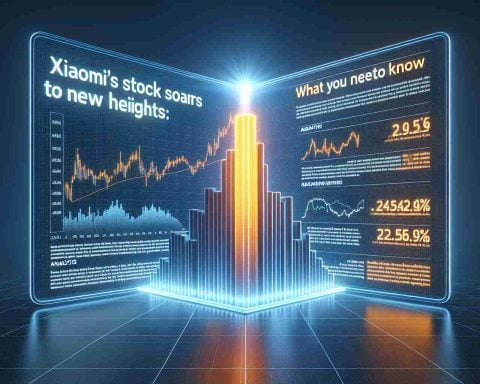Aurora Innovation shares skyrocketed early Tuesday following a groundbreaking revelation during Nvidia’s CEO Jensen Huang’s keynote at the Consumer Electronics Show. The self-driving tech leader has joined forces with Nvidia and German manufacturing titan Continental to revolutionize long-haul trucking.
Aurora’s stock surged to an impressive 44% in pre-market trading, reflecting the company’s recent success—stock increased approximately 70% in 2024 alone. This new collaboration aims to roll out driverless trucks utilizing Nvidia’s DRIVE Thor chips, with mass production slated for 2027, and initial production samples are expected to be available in early 2025.
In Texas, Aurora currently operates over two dozen trucks in autonomous mode, although a human operator remains on board—these efforts are part of a partnership with Uber and FedEx. Aurora had initially planned to release its commercial model by the end of 2024 but shifted the timeline to enhance its technology. The company now targets an April launch, albeit starting small with a single truck monitored remotely along the Dallas-Houston corridor.
Meanwhile, Nvidia is expanding its footprint in the self-driving sector. Monday’s announcements also noted that Toyota will integrate Nvidia’s DRIVE AGX Orin technology into its next-gen vehicles. Jensen Huang emphasized collaborations with major car manufacturers globally, including efforts with Waymo, Tesla, and Rivian, among others.
Nvidia’s stock also saw a pre-market boost of nearly 3%, underscoring the company’s role in the booming autonomous industry. Huang forecasts a trillion-dollar future for robotics, powered in part by these advancements.
Breakthrough in Self-Driving: Aurora’s Valuation Soars Amid Strategic Alliances
Aurora Innovation has taken a significant leap forward in the autonomous vehicle industry through a strategic partnership with tech giant Nvidia and German manufacturer Continental. This collaboration targets the transformation of long-haul trucking, a sector ripe for innovation, with Aurora’s stock experiencing a remarkable 44% surge in pre-market trading. The partnership aims to expedite the blending of cutting-edge technologies to streamline driverless truck production and deployment.
Revolutionary Collaboration in Autonomous Trucking
Aurora’s integration with Nvidia focuses on utilizing Nvidia’s DRIVE Thor chips to propel driverless truck technology forward. Mass production is anticipated to commence in 2027, with preliminary production samples available as soon as 2025. This strategic alliance underscores a step-change in the trucking industry, potentially translating into enhanced efficiencies and reduced transportation costs on a global scale.
Currently, Aurora operates more than two dozen trucks in Texas under autonomous mode. Despite the presence of human operators for safety assurance, these vehicles represent vital groundwork for the company’s ongoing innovations. The trucks operate within a partnership framework with Uber and FedEx, signaling robust commercial interest and collaboration within the tech and logistics industries.
Nvidia’s Expanding Influence in the Self-Driving Ecosystem
Underpinning this alliance is Nvidia’s extensive reach and influence in the self-driving sector. Nvidia’s recent announcement also highlighted an impending collaboration with Toyota to integrate Nvidia’s DRIVE AGX Orin technology in their upcoming vehicle models. This development showcases Nvidia’s multifaceted approach to capturing market share across diverse self-driving applications.
Jensen Huang, Nvidia’s CEO, has positioned the company as a pivotal player in what he predicts could evolve into a trillion-dollar robotics future. Nvidia’s continuous partnerships with industry stalwarts such as Waymo, Tesla, and Rivian affirm its strategic endeavors in spearheading innovation.
Industry Implications and Future Perspectives
Aurora’s recent stock performance, combined with Nvidia’s influence, signifies a robust trajectory for the self-driving sector. The future of autonomous trucking, bolstered by these technological partnerships, hints at revolutionizing logistics, supply chain efficiencies, and environmental impacts through optimized fuel consumption and reduced emissions.
As these developments unfold, companies involved are poised for a technological revolution that accentuates data integration, machine learning, and AI capabilities, potentially redefining industry standards and consumer expectations alike.
For further insights into technological advancements in self-driving and robotics, visit Nvidia’s official website.





















